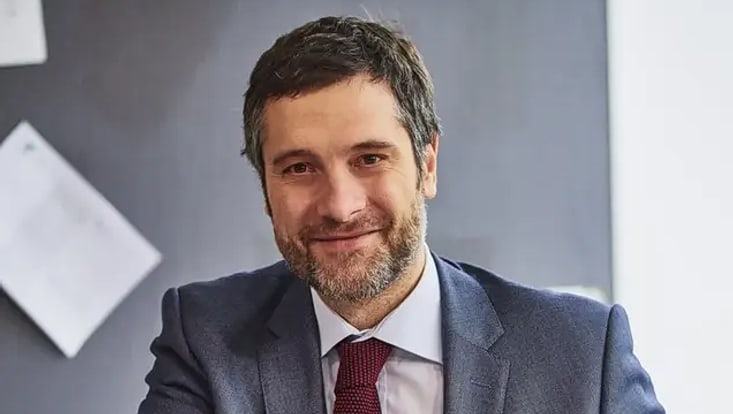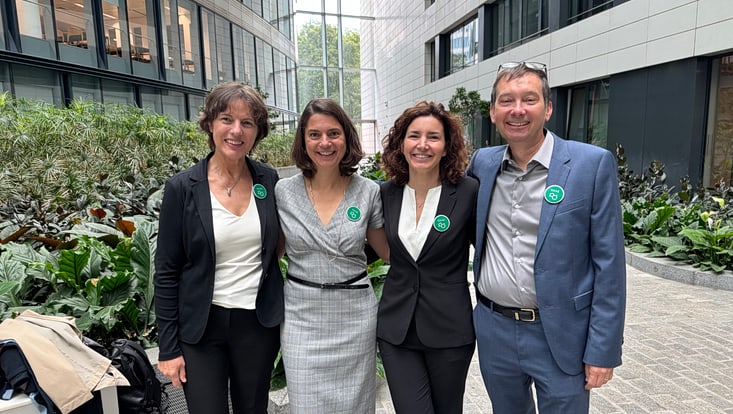Imaging of Matter
Cluster implements focused promotion of young talent
24 November 2020
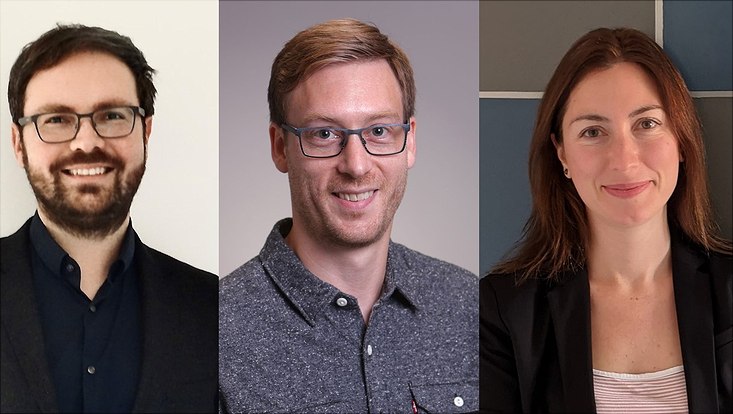
Photo: private
Three further researchers will complete the group of Young Investigator Group Leaders at the Cluster of Excellence "CUI: Advanced Imaging of Matter": Dr. Irene Fernandez-Cuesta and Dr. Frank Schlawin started their research at the cluster on 1 October 2020, Aaron Kelly will follow on 1 January 2021. With Dr. Thore Posske, Dr. Eric Hill, Dr. Guillaume Salomon and Dr. Philipp Wessels-Staarmann, the cluster supports a total of seven Young Investigator Group Leaders, thus implementing the promotion of young researchers, which is a priority of the research program, in a targeted manner.
The position of Young Investigator Group Leader has been newly introduced as part of the Cluster of Excellence's promotion of young researchers. It is aimed at highly talented young scientists who are already independently conducting ambitious research projects of their own and who are applying for their own funding at the level of Emmy Noether Groups or ERC Starting Grants. To support these highly talented researchers in their scientific careers, the cluster is currently setting up a structured development program. The aim is to identify the potential of the young scientists and to support them individually. All Young Investigator Group Leaders are accompanied by a so-called host.
Dr. Irene Fernandez-Cuesta
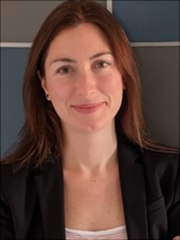
In 2016, Dr. Irene Fernandez-Cuesta was already able to obtain the ERC Starting Grant "Suspended Fluidic nanochannels as optomechanical sensors for single molecules (FLUIN-EMS)" in the amount of €1.5 million, with which she had previously conducted research at the Center for Hybrid Nanostructures (CHyN). On 1 October she started her research activities within the cluster: Using advanced nanotechnology, Dr. Fernandez-Cuesta studies biomolecules, which she analyzes by optical spectroscopy and imaging methods. The aim is to develop a system that integrates new optical properties into a chip that can be used to detect and analyze biomarkers at very low concentrations. The research may improve the early detection of different diseases. To foster biomedical applications, the basic researcher cooperates with the University Medical Center Hamburg-Eppendorf.
Her investigations of single DNA molecules supplement the work of the groups of Prof. Arwen Pearson (Universität Hamburg) and Prof. Henry Chapman (Universität Hamburg, DESY). In addition, Dr. Fernandez-Cuesta plans to bring her expertise on plasmonic cavities for the investigation of strong light-matter interactions into the research area B of the cluster.
Dr. Fernandez-Cuesta did her PhD in Barcelona, Spain, and worked for several years in Berkeley, California, USA. There she also started a company to use nanodevices to detect toxins in fresh water. She won a Small Business Innovation Research Program Phase I (SBIR) of the National Science Foundation (USA) and a Marie Curie International Outgoing Fellowship. She was nominated by Universität Hamburg for the DFG's Heinz Maier-Leibnitz Prize 2020 and sat on the jury for the Mildred Dresselhaus Prize 2019 and 2020 of the Cluster of Excellence. Her host is Prof. Arwen Pearson from the Institute of Nanostructure and Solid State Physics.
Dr. Frank Schlawin
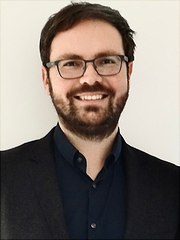
Since 1 October 2020, Dr. Frank Schlawin has also been researching as Young Investigator Group Leader in the Cluster and at the Max Planck Institute for the Structure and Dynamics of Matter (MPSD). The theoretical physicist worked for several years as a research associate at the University of Oxford in Great Britain and conducts research at the interfaces of quantum optics, solid state physics and chemical physics. He is engaged in the theoretical description of the interaction of quantum light with complex materials.The aim is to gain a better understanding of how new quantum light sources can be used to obtain new information in spectroscopy or to change material properties in superconductors with the help of quantum light.
Dr. Frank Schlawin was awarded the Springer Thesis Award 2016 for his doctoral thesis on quantum spectroscopy. In 2019 the Werner-von Siemens-Ring Foundation honored him for his groundbreaking work on the use of the quantum properties of light for spectroscopy and for the control of complex quantum systems. His host is Prof. Andrea Cavalleri, Director at the MPSD.
Dr. Aaron Kelly
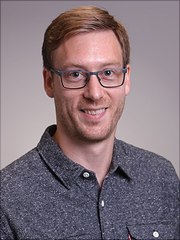
Dr. Aaron Kelly is currently still working as Assistant Professor of Chemistry and Physics at Dalhouise University in Halifax, Canada, but has already established close ties to Hamburg as a Visiting Scientist at the MPSD. He will start his research activities at the cluster on 1 January 2021.
His main research interests are the understanding of mechanistic details of chemical processes in the condensed phase, such as electron and proton transfer in solution, relaxation of photoexcited molecules in various environments, photosynthetic energy transfer and interfacial catalytic reactions. These problems all lie in a regime where, for practical reasons, the exact quantum mechanical solution cannot be achieved. To describe the structural and dynamic aspects of these processes, Aaron Kelly tries to develop and apply accurate and efficient methods to combine classical and quantum mechanical theories. He combines molecular dynamics simulations and quantum chemistry calculations. The results are interesting for natural light-harvesting systems, bulk heterojunction solar cells, molecules in optical cavities and solid state systems.
In 2012 Dr. Aaron Kelly won a Postdoctoral Fellowship by the Stanford Center for Molecular Analysis and Design, followed by a Postdoctoral Award from the University of Pennsylvania Center for Theoretical Chemistry in 2015. In 2018 he received the Dalhousie University Educational Leadership Award for Collaborative Teaching. His host will be Prof. Angel Rubio, Director at the MPSD.

